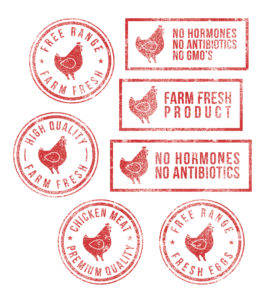Consumer Class Action
Supply Chain Transparency – Courts Side with Food Makers
** Ninth Circuit Rules Failure to Disclose Transparency Issues Not Actionable Omission ** (more…)
Online Subscriptions Require an Easy Out in California
** New Requirements under California’s Auto Renewal Law Requires Online Cancellation for Online Subscribers **
By: Brent E. Johnson

As we blogged about in the past, in 2010, California’s Automatic Purchase Renewal Statute (“CAPRS”) became effective for businesses offering automatic renewals or continuous service offers to California consumers. See Cal. Bus. & Prof. Code § 17602. The stated intent of CAPRS is to “end the practice of ongoing charging of consumer credit or debit cards or third party payment accounts without the consumers’ explicit consent for ongoing shipments of a product or ongoing deliveries of service.” Cal. Bus. & Prof. Code § 17600.
Almost half of US states now have similar laws on the books – some applying to all consumer contracts – others applying only to specific businesses such as gyms or security services. The common denominator amongst these state laws is a requirement to provide disclosure of auto renewal policies in a manner that is clear and conspicuous. See e.g., Connecticut (Conn. Gen. Stat. § 42-126b), Florida (Fla. Stat. § 501.165), Georgia (O.C.G.A. § 13-12-3), Illinois (815 ILCS 601/10), Louisiana (La. Rev. Stat. § 9:2716), Maryland (Md. Code Com. Law § 14-12B-06), New Hampshire (N.H. Rev. Stat. § 358-I:5), New York (N.Y. Gen. Oblig. Law § 5-903), North Carolina (N.C. Gen. Stat. § 75-41), Oregon (Or. Rev. Stat. §§ 646A.293, .295), Rhode Island (R.I. Gen. Laws § 6-13-14), South Carolina (S.C. Code § 44-79-60), South Dakota (S.D. Codified Laws § 49-31-116), Tennessee (Tenn. Code §§ 62-32-325, 47-18-505) and Utah (Utah Code § 15-10-201).
California’s law is among the strictest, requiring explicit consent before charging a consumer’s account for ongoing orders. As a remedy for violation, goods provided to a subscriber on an automatic basis without the required consent are deemed “unconditional gift[s]” (§ 17603) – i.e., “freebies.”
Although not particularly old, California’s law recently received an update– with new provisions going live July 1, 2018. The primary new provision is a requirement that accounts opened online must be permitted to be cancelled online. Cal. Bus. & Prof. Code § 17602 (c) (“A consumer who accepts an automatic renewal or continuous service offer online shall be allowed to terminate the automatic renewal or continuous service exclusively online.”) No more cumbersome phone calls to customer service agents to cancel accounts. The makeover of California’s law also extends its application to free or discounted trial periods. A cancellation notification must be given prior to the end of this period giving the consumer information on how to cancel prior to being charged the new or non-discounted price. § 17602 (a)(3).
Failure to comply with auto renewals laws has exposed a wide variety of companies to class action complaints (mainly in California under CAPRS). Vemma Nutrition; Spotify; Dropbox; Tinder; LifeLock; Birchbox; Google and Apple have all been sued. Courts are clear that CAPRS does not have an intrinsic private right of action – but that a violation would be an “unlawful” business practice under California’s Unfair Competition Law (UCL) (Cal. Bus. & Prof. Code § 17200). Johnson v. Pluralsight, LLC, No. 17-15374, 2018 WL 1531067 (9th Cir. Mar. 29, 2018). And as for a remedy under the UCL, failure to honor the “free gift” provision of § 17603 was deemed to be a sufficient allegation to warrant restitution. Id. at * 2.
Companies should take steps to comply with CAPRS and similar laws by:
- Making sure the auto renewal terms are stated clearly and conspicuously – and making sure the terms comprehensively describe the offering, price, frequency of charges and length of minimum terms.
- Having a process to obtain the consumer’s affirmative consent before he or she is charged and providing a mechanism to cancel online, if the subscription is created online.
- Confirming the terms with a notice (such as by email) that includes all relevant offer terms and the cancellation policy prior to the first payment or increase in promotional prices.
OEHHA Flips on Coffee
** California Regulators Propose New Regulation That Excludes Coffee Makers from Acrylamide Prop 65 Warning **

By: Brent E. Johnson
As we blogged about recently, Defendants in the blockbuster Prop 65 case, Council for Education and Research on Toxics v. Starbucks Corp. et al., No. BC435759 (Los Angeles County Superior Court), argued that although acrylamide was listed as a Prop 65 chemical – and although acrylamide was present in coffee (created as part of the roasting process) – consuming coffee, itself, has not been shown to cause cancer and, therefore, a Prop 65 warning was unwarranted. Defendants went further, arguing that studies have actually shown that coffee reduces the risk of some cancers. The court disagreed with Defendants analysis, holding that the relevant question was whether acrylamide causes cancer – not coffee as a whole. The court also rejected Defendants’ arguments touting the overall health benefits of coffee, which would have permitted the court to apply a “public health” exception to Prop 65 labeling.
The result: coffee sellers in California have no choice but to label their beverages with a Prop 65 warning. With millions of coffee drinkers in California – most of them daily drinkers – the Prop 65 warning looks to become even more ubiquitous (and ignored).
But not so fast! The California Office of Environmental Health Hazard Assessment (OEHHA) just proposed a new regulation providing that cancer warnings would not be required for coffee, stating (in effect) that the health benefits of consuming coffee outweigh the cancer risk posed by acrylamide. OEHHA’s press release articulates that its proposed regulation is based on scientific evidence that drinking coffee has not been shown to increase the risk of cancer and may reduce the risk of some types of cancer: “In a review of more than 1,000 studies published this week, the World Health Organization’s International Agency for Research on Cancer (IARC) concluded that there is ‘inadequate evidence’ that drinking coffee causes cancer. IARC found that coffee is associated with reduced risk for cancers of the liver and uterus, and does not cause cancers of the breast, pancreas and prostate. IARC also found that coffee “exhibits strong antioxidant effects related to reduced cancer risk.” OEHHA’s Initial Statement of Reasons are linked here and make for interesting reading. The proposed regulation, which would fit under § 25704 of the implementing regulations, states: “Exposures to listed chemicals in coffee created by and inherent in the processes of roasting coffee beans or brewing coffee do not pose a significant risk of cancer.”
OEHHA’s approach to this proposed regulation is identical to that rejected by the court in the Starbucks case when it denied the coffee sellers’ request that it consider the wider science on the cancer risks/benefits of coffee rather than the limited question of harm from acrylamide. It is also an interesting development in so far as Prop 65 (Cal. Health & Safety Code § 25249.8 (a)) requires OEHHA to list chemicals that IARC identifies as carcinogenic but does not have a mechanism for exempting those products that IARC gives a green light.
OEHHA’s proposed regulation begs the question: What about other products that are inherently healthy but contain a Prop 65 chemical? For example, lead appears in trace amounts in dietary supplements that are made from botanicals. Should these supplements also get their own product-specific exemption from Prop 65 labeling?
Attempts to Enforce “Humane” Treatment of Poultry Fail
** Foster Farms Prevail in Dismissing Class Action **

By: Brent E. Johnson
Resolving a politically-charged case based strictly on legal precedent and the evidence is no easy task. But as Elle Woods said (quoting Aristotle), “The law is reason free from passion.” (Granted, Elle disagreed with Ari.) Recently, a case involving the treatment of chicken broilers during the farming and slaughtering process posed that very dilemma to a superior court judge in Los Angeles. Leining v. Foster Poultry Farms, Inc., Cal. Super. Ct., No. BC588004.
The origins of this putative class action were both public and explosive. On June 17, 2015, reporters gathered at the Millennium Biltmore Hotel in downtown Los Angeles to view three minutes of video footage of animal cruelty perpetrated by Foster Poultry Farms, Inc. employees at two facilities in Fresno during the preceding two months. None other than noted animal welfare activist, vegetarian and retired “The Price Is Right” host, Bob Barker, narrated the video and spoke to the assembled reporters.
The video was shot by two undercover investigators from Mercy For Animals, a non-profit organization dedicated to advocating for animals generally and the prevention of farm animal cruelty specifically. The investigators applied for and obtained jobs with Foster Farms in order to surreptitiously record the footage. One of the investigators allegedly reported the animal abuse to his superior as well as phoned Foster Farms’ hotline to no avail.
Foster Farms was not the only party in Mercy For Animals’ crosshairs. Part of the focus of the presentation – and, in particular, Mr. Barker’s remarks – was the American Humane Association (“American Humane”), a non-profit whose website declares “is committed to ensuring the safety, welfare and well-being of animals.” American Humane pioneered, among other things, Hollywood’s animal welfare program, “No Animals Were Harmed.” In the case of farm animals, American Humane operates a voluntary certification program where farms can earn the American Humane Certified™ label through annual facility audits that demonstrate the farms’ compliance with American Humane’s animal welfare standards. Foster Farms had been Humane Certified™ for the two years preceding the May/June 2015 videotaped incidents. Mr. Barker informed the reporters that he had in years past been an advocate for American Humane until “I was suddenly made aware of what [American Humane] really [is], and I have absolutely no respect for [them]. I think they have failed miserably in their efforts to protect animals in the movie industry, and obviously they have failed miserably in any protection for animals in the food industry.” Mr. Barker went so far as to remark that American Humane once had been a beneficiary of his will — but given that he appears to be immortal, the loss of this status may not be a matter of consequence.
After the exposé at the Biltmore, Mercy For Animals filed a complaint with the Federal Trade Commission against both Foster Farms and American Humane claiming that the two entities had engaged in unfair and deceptive practices in connection with the advertising of Foster Farms chicken products under the Humane Certified™ label when the video footage showed that chickens were not being raised or slaughtered humanely. A week later, Foster Farms was sued for false advertising in a putative class action in Los Angeles County Superior Court. Leining v. Foster Poultry Farms, Inc., American Humane Association, BC588004 (LA Sup. Court, July 13, 2015). American Humane was added as a defendant by way of Plaintiff’s first amended complaint.
Foster Farms’ reaction to the publication of the video was swift. It suspended (and ultimately terminated) five employees allegedly involved in the animal cruelty and cooperated with the Fresno County Sheriff’s Department’s Agricultural Crimes Task Force. (At least one former employee was prosecuted.) In addition, Foster Farms reinforced “animal welfare training companywide and in its plants.” Finally, the Company implemented a state-of-the-art video monitoring system at its facilities that allowed auditors to review daily footage to assure employee compliance with Foster Farm’s animal welfare policies and procedures.
American Humane’s initial response to the Mercy For Animals video was surprise. Organization officials immediately met with Foster Farms to discuss the matter. After the meeting, American Humane’s spokesperson, Mark Stubis, stated, “Foster Farms has worked very hard to create a culture of humane treatment . . . . In the three years that we’ve been working with them, they have never failed an audit. This is an extremely rare situation for us.” Mr. Stubis continued, “The certification program can’t stop one or two employees who break those rules . . . . We certainly expect any certified farm to take immediate corrective action against anyone who abuses animals.” American Humane subsequently conducted unannounced inspections of Foster Farm’s poultry facilities and they passed. Foster Farms retained its status as Humane Certified™.
The FTC resolved the complaint filed by Mercy For Animals on April 28, 2016. In the FTC’s eyes, the issue revolved around its Guides Concerning the Use of Testimonials and Endorsements in Advertisements (“Endorsement Guides”). 16 C.F.R. § 255.4 “Because [American Humane] holds itself out as a bona fide independent certification organization, the [Humane Certified™] label on Foster Farms products arguably constitutes an endorsement, as defined by the FTC Guides Concerning the Use of Testimonials and Endorsements in Advertisements.” But despite its reference to the Endorsement Guides and its recitation of the general parameters of American Humane’s certification program, the FTC passed on the issue of whether or not the program resulted in a certification that “conveyed any express or implied representation that would be deceptive if made directly by the advertiser.” In the end, the FTC simply concluded that because Foster Farms took immediate remedial actions after learning of the video (suspending/terminating the involved employees, cooperating with law enforcement, and installing an expensive camera system) and passed American Humane’s inspections of the affected facilities, it would not recommend enforcement action “[d]espite concerns about the [American Humane] certification in light of the documented animal abuse . . . .”
Despite the FTC’s decision, the class action in Los Angeles raged on. The putative class was represented by Drinker Biddle & Reath, LLP (“DrinkerBiddle”) — a firm noted for its defense of consumer class actions. Perhaps not coincidentally, DrinkerBiddle represented the producers of The Price Is Right in past employment lawsuits brought by former Price is Right models.
The class action complaint did not place much emphasis on the Mercy For Animals video. Rather, the complaint’s gravamen was that American Humane’s certification standards were woefully inadequate and far from what a reasonable consumer would believe is the humane treatment of chickens – even chickens whose destiny is dinner. In Plaintiff’s graphic words, “(a) the chickens were hatched from eggs taken from facilities that are allowed to engage in forced-molting[1], maceration[2], beak-trimming[3], de-combing[4], toe amputation[5], food and water deprivation[6], and Noz Bonz practices[7]; (b) the chickens are shackled upside down by their feet for 90 seconds prior to slaughter as they are conveyed through processing facilities, electrically shocked before being rendered effectively unconscious, if they are at all, by such electric ‘stunning,’ and are then drowned and scalded, after having their necks cut, while they are, in at least some cases, still conscious; (c) the chickens suffer bruises and broken wings and bones; and (d) that the chickens spend their entire lives in chronic pain due to joint and leg deformities resulting from selective breeding for rapid growth, and live exclusively indoors in overcrowded poultry barns with high ammonia concentrations, many suffering from foot diseases, and unable to walk more than 5 feet without severe pain.” According to Plaintiff, because American Humane’s certification purportedly permitted these practices, the Humane Certified™ label was objectively false and misleading. [Editors’ Note: If Plaintiff’s allegation that some of the chickens were “drowned” – i.e., still breathing when they were placed in the scalding tank to remove their feathers – this would be a violation of United States Department of Agriculture regulations that would have presumably been discovered during Food Safety and Inspection Service inspections. The opinion does not reference any such evidence being presented to the court.]
On August 11, 2017, Foster Farms and American Humane filed for summary judgment Two weeks ago, the Honorable John Shepard Wiley, Jr. granted the defendants’ motion and dismissed the case. Judge Wiley’s opinion is an interesting and important read. It starts with the premise that American Humane’s certification is subjective. “The undisputed evidence in this record is that the word ‘humane’ is very vague.” Judge Wiley then moves to the controlling California authority, Hanberry v. Hearst Corp. (1969) 276 Cal.App.2d 680, a case where the plaintiff claimed that a pair of shoes bearing the “Good Housekeeping Seal of Approval” was slippery on vinyl flooring, which slipperiness caused her injury. The Hanberry Court concluded, according to Judge Wiley, that for a subjective product endorsement to be non-negligent, it must meet three requirements: (1) the endorser must be independent; (2) the endorser must take reasonable steps in conducting its evaluation; and (3) the evaluation must involve some degree of expertise. Id. at 686.
Judge Wiley dispatched with these requirements in short order. American Humane was independent from Foster Farms despite the fact that the Company allegedly pays American Humane $375,000 for its certification, which Plaintiff contended was “unusually high” (without evidentiary support such as comparisons to other similar organizations). As for Plaintiff’s assertion that American Humane was not independent because every certification program participant passed the organization’s audits, the court observed that the program is voluntary and, therefore, only those poultry farms that will pass the audits apply for the certification. “When the applicant pool is highly non-random, one cannot expect certification results to vary randomly.”
On the issue of reasonable steps, Judge Wiley dismissed Plaintiff’s assertion that conducting audits – as opposed to annual visits to each poultry facility – was required. “The Hanberry case condoned sampling, as is rational.” And the fact that American Humane gave poultry producers between seven and fourteen days’ notice of the audit did not create a “Potemkin Village” because “[n]otice was necessary to ensure there were actually chickens at that facility.”
Reading the opinion as a whole, though, it is clear that Plaintiff’s case ground ashore on the rocks of expert opinion. American Humane’s primary witness and Scientific Advisory Committee member was Dr. Joy Mench, who the Court described as “a leading expert on poultry who sits on virtually every scientific advisory board in the industry.” She was a professor at the University of Maryland and, later, the University of California Davis. Dr. Mench authored the only textbook in the field of poultry behavior and welfare. Most significant to Judge Wiley, Dr. Mench’s advisory committee work (including her work with American Humane) was truly independent – as it was without compensation other than travel expenses.
Pitted against Dr. Mench was Plaintiff’s expert, Leah Garces, USA Director for Compassion in World Farming and a member of the Board of Directors for Global Animal Partnership (https://www.compassioninfoodbusiness.com/our-work/meet-the-team/leah-garces/) whose testimony the Court struck in its entirety. Garces opined that American Humane’s standards are not “the best,” which Judge Wiley found irrelevant because American Humane does not represent that its standards are the best. Most tellingly, the Court characterized Plaintiff’s expert as follows: “Garces is a partisan advocate. . . . Garces is not a scholar or researcher. She has done no research and published no peer-reviewed articles or books. She has no scholarly or academic appointments or affiliations.” The Court’s final blow: “Garces’ method is ipse dixit: ‘I say it. Believe it.’ . . . Garces includes three vague sentences about her supposed professional experience, but nothing concrete distinguishes her from an opinionated but insubstantial dilettante.” Let’s face it, it’s hard to prevail when your expert’s testimony is dismissed as coming from a “dilettante” and excluded in its entirety.
What can we learn from the Foster Farms case? First, hire an expert with solid credentials. But putting aside the obvious, this case is interesting for what Defendants did not argue and what Plaintiff failed to argue. Although Dr. Mench testified that the word “humane” as it applies to the treatment of broiler chickens is “subjective” and the Court agreed, Defendants did not assert that the Humane Certified™ label was “puffery,” i.e., a claim that expresses subjective rather than objective views that no reasonable person would take literally. Newcal Indus., Inc. v. IKON Office Solutions, 513 F.3d 1038, 1053 (9th Cir. 2008). First, American Humane’s certification is an actual label that obviously has value or it wouldn’t exist. And second, consumers care that the animals they eat were treated humanely – even if their view of what “humane” means differs. For Plaintiff’s part, the question is: Where was the survey evidence demonstrating that, no matter how divergent consumer definitions of “humane” may be, American Humane’s standards do not meet their expectations? Granted, divergent views on the meaning of “humane” could prove challenging to class certification. But Plaintiff’s reliance on expert testimony regarding the expert’s personal definition of the term was unpersuasive – particularly when compared to the Defendants’ expert whose entire career has been focused on animal behavior and the humane treatment of same.
In the end, it appears that Plaintiff and her counsel relied on the “Parade of Horribles.” It didn’t work. The court analyzed the evidence that was before it and controlling California authority on commercial endorsements and determined that Plaintiff failed to meet her burden of showing a triable issue of fact that an independent, non-profit’s standard for the humane treatment of poultry, which was developed by members with expertise on the behavior of chickens and enforced through a reasonable auditing process, was somehow divergent from the reasonable consumer’s subjective view of the humane treatment of chickens.
Perhaps that is for the best. Consumer class actions are poor vehicles for recognizing and enforcing important substantive rights – including the rights of animals to humane treatment. Plaintiff’s complaint alleged that “the price of Foster Farms American Humane® Certified labeled chicken was $5.99/lb. whereas other chicken labeled ‘all natural’ but without the American Humane® Certified label was $2.99/lb. and other chicken labeled as ‘hatched, raised, harvested in the U.S.’ was $3.99/lb.” But would an advertising injunction and a $2-$3 refund per pound of chicken (up to ten pounds with receipt/5 pounds without) really have meant anything? The forum for such issues is not the Los Angeles County Superior Court, but Congress, the United States Department of Agriculture and state agriculture departments. Congress long ago enacted laws for the humane slaughter of livestock, 48 U.S.C. § 1901 et seq., and FSIS has promulgated detailed regulations under that law. But those regulations do not apply to poultry. With regard to chickens and other domestic fowl, FSIS regulations and inspections are directed to “good commercial practices,” rather than humane practices. Whether that changes as consumers demand and expect humane treatment of all animals raised for meat remains to be seen – but it’s certainly likely.
[1] Forced molting is the practice of forcing feather loss and regrowth, which increases egg production in mature hens. It is accomplished by withholding food (and sometimes water) from chickens for an extended period of time.
[2] Grinding up day-old male chicks because they will not lay eggs and are not suitable for meat production.
[3] Prevents chickens from injuriously pecking each other or themselves.
[4] De-combing is the removal of the chicken’s comb to limit the damage caused by frostbite or other injuries, to prevent the chicken’s head from becoming so heavy it interferes with eating or causes the head to sink into the chest, and to prevent injuries from other chickens or enclosures.
[5] Toe amputation occurs when a chicken’s toes are infected or suffer injury, such as frostbite.
[6] See footnote 1 on forced molting.
[7] According to the complaint, “the practice of piercing the nasal septum of young breeding roosters with a plastic stick to prevent them from accessing females’ food.”
2018: Food Litigation Trends – Diet Claims
** Part I in our Series on the New Year of Food Litigation **
By: Brent E. Johnson

“Diet” advertising claims are a potential new target of consumer class actions that companies should be on the lookout for in 2018. A trio of cases filed in late 2017 against three of the largest “diet” branded beverage companies — The Coca-Cola Co., Pepsi-Cola Co. and Dr Pepper Snapple Group Inc. — highlight the risk. The complaints in these cases accuse the soda companies of violating the Food, Drug and Cosmetic Act, which prohibits the labeling of food that is “false or misleading in any particular.” 21 U.S.C. § 343(a). The cases were all filed in the U.S. District Court for the Southern District of New York: Excevarria v. Dr Pepper Snapple Group Inc. et al., 1:17-cv-07957 (S.D.N.Y, Oct. 16, 2017); Geffner. v. The Coca-Cola Co., 1:17-cv-07952 (S.D.N.Y, Oct. 16, 2017); and Manuel v. Pepsi-Cola Co., 1:17-cv-07955 (S.D.N.Y, Oct. 16, 2017).
Plaintiffs claim that inherent in “diet” branding is a promise that the product will assist with weight loss. The complaints allege that this promise is unfulfilled with diet sodas because the artificial sweeteners used in the defendants’ products cause weight gain, not weight loss.
The science referenced in the complaints (while still developing) is intriguing. We all know that reducing caloric intake is one of the foundations of weight loss. Starting in the 1960’s, beverage makers removed natural sugars (high in calories) from products, replacing them with newly discovered “low calorie” sweeteners such as aspartame and sucralose. These sweeteners have been rigorously tested and are generally regarded as safe by FDA. See 46 FR 38283, 48 FR 31376; see also Chobani, LLC v. Dannon Co., Inc., 157 F. Supp. 3d 190 (N.D.N.Y. 2016). More recently, though, these sweeteners have been tested for their efficacy in weight loss. In particular, a recent Yale study suggests that the caloric value of artificial sweeteners is immaterial – it is the sweetness of the products that matters. According to the study, a sweetness “mismatch” – where an intensely sweet product does not have the expected caloric load — causes the body to shut down metabolism. This lower metabolism in many cases causes weight gain.
But what does that mean for “diet” products containing artificial sweeteners? Is the simple use of the term “diet” (particularly where it is only in the brand name, i.e., Diet Coke, or Diet Pepsi) an affirmative representation that the soda is a weight-loss product? As with any false advertising lawsuit, “context is crucial.” Fink v. Time Warner Cable, 714 F.3d 739 (2d Cir. 2013). Is Diet Coke actually sold as a weight loss supplement? Does any reasonable consumer believe that soda (sugar free or not) will make them lose weight? Is “diet” in these contexts a relative term – i.e., as compared to a regular soda. And is “diet” (or similar terms such as “lite” or “low-cal”) too ambiguous and idiosyncratic to attach an absolute meaning as plaintiffs attempt to in these lawsuits? Is it the equivalent of suing McDonald’s because the Happy Meal does not actually make you “happy”?
The diet soda giants have one significant advantage in this debate. The use of the term “diet” in the brand name of soft drinks is grandfathered under the Nutrition Labeling and Education Act of 1990 (“NLEA”). Under the NLEA, the word “diet” is specifically approved as a brand name for a soda on the market in 1989 as long as the soda is under 40 calories per serving. 21 U.S.C. § 343(r)(2)(D) (requiring compliance with 21 C.F.R. § 105.66). And the NLEA does not mandate that the use of the word “diet” meet some “weight loss” requirement. FDA is otherwise silent, except for noting that “diet” branding must not be otherwise false and misleading. 21 C.F.R. § 101.13(q)(2). Arguably, the express grandfathering under the NLEA preempts or otherwise forecloses on an accusation that certain sodas cannot properly be branded “diet.”
How courts treat the “diet” claims will be an important issue to watch in 2018. If this concept of artificial-sweetener-as-diet-killer takes hold, it could be a rocky year for foods that make similar claims. We will be watching the “diet” wars with interest . . . and coming in Part II of our multi-part series – xantham gum as the basis of new “natural” class actions.
Actual Injury Required for Biometric Suits
** Biometric Plaintiffs Face Significant Setback in Illinois **
By: Brent E. Johnson

In a growing number of states, biometric information has become a new type of protected data. This form of information has been of particular concern to legislators spurred by its adoption in everyday uses — for example, in fingerprint scanners and facial recognition technology in smart phones — and its increasing use by employers tracking and verifying their employees’ hours. The use of biometric information poses unique privacy and security challenges, not the least of which is that — unlike other types of personal identifiers (like a PIN or Social Security Number) — biometric information is permanent and cannot be changed if it falls into the wrong hands.
Background: Illinois was the first state to enact biometric data protections. Its Biometric Information Privacy Act (740 ILCS 14) (BIPA) passed in 2008, created a “notice and consent” regime wherein: (i) private entities may collect, use or store biometric information only after obtaining a written release by the persons whose biometric information is sought; (ii) private entities are required to notice persons in writing about the specific purposes for and the length of time during which their biometric information will be collected, used or stored; and (iii) private entities must follow notice and consent requirements before disclosing a person’s biometric information to a third party. Under BIPA, individuals have the right to sue private party violators and recover a minimum of $1,000 for a negligent violation and $5,000 for each violation recklessly or intentionally committed. Plaintiffs may also collect attorneys’ fees and costs. Texas passed a similar law in 2009 (Capture or Use of Biometric Identifier Act) (Bus & Com § 503.001), and in 2017, Washington state passed a biometric law (H.B. 1493). During the 2017 legislative session, bills dealing with biometric notice and consent regimes similar to BIPA were introduced in several states, including Alaska (H.B. 72), Arizona, Connecticut (H.B. 5522), Massachusetts (H.B. 1985 ), Montana (H.B. 518), Missouri, New Hampshire (H.B. 523) and New York – but all failed to pass. The Washington and Texas statutes only allow for enforcement by the attorney general’s office. Accordingly, Illinois remains the only state with a biometric statute that includes a private right of action – and it is thus the only state that has so far caught the attention of the class action bar.
While the Illinois statute has been in force since 2008, it received little attention until the last two years. In 2016 and 2017, BIPA actions were brought against companies that use facial-recognition technology, such as Facebook, Shutterfly, Google, Snapchat, and others, as well as companies that use fingerprint scans, such as L.A. Tan. Employee suits have also become popular, stemming from the use of biometric information in the workplace, such as fingerprint-operated time clocks. Hotel chain InterContinental Hotels Group, broadband company Zayo Group, and convenience store chain Speedway LLC have all been the subject of employee lawsuits under BIPA.
For the defense bar dealing with BIPA claims, two major questions have been: (i) Can a company be sued for technical violations of the Act where no damages were sustained by the plaintiffs’ class? and (ii) Does BIPA have extraterritorial application?
The first question recently received attention by the Illinois Court of Appeals. In Rosenbach v. Six Flags Entm’t Corp., 2017 WL 6523910 (Il. Ct. App., Dec. 21, 2017), Stacy Rosenbach, whose son’s thumbprint was taken by Six Flags after he purchased a season pass for one of its Great America theme parks, sued the company for violating BIPA based on her allegation that it failed to properly obtain written consent or disclose Six Flag’s plan for the collection, storage, use or destruction of her son’s biometric identifiers or information. Six Flags moved to dismiss, arguing that under Section 20 of BIPA any right of action is limited to a “person aggrieved,” which excludes Plaintiff because she failed to allege any actual injury. The lower court denied the theme park company’s motion to dismiss, but later certified to the appellate court two questions relating to whether individuals “aggrieved by a violation of the act” can rely solely on alleged violations of the notice and consent requirements or whether they must allege some actual harm. In answering these questions, the Court of Appeals held that in order to meet the definition of an aggrieved person under the statute, plaintiffs must claim some actual harm. The Court noted, “if the Illinois legislature intended to allow for a private cause of action for every technical violation of the Act, it could have omitted the word ‘aggrieved’ and stated that every violation was actionable. A determination that a technical violation of the statute is actionable would render the word ‘aggrieved’ superfluous. Therefore, a plaintiff who alleges only a technical violation of the statute without alleging some injury or adverse effect is not an aggrieved person under section 20 of the Act.” 2017 WL 6523910 at ¶ 23. The court rejected Plaintiff’s argument that biometric privacy, itself, is a right that is injured by violation of the statute. Id. at ¶ 20. This decision has the potential to foreclose on scores of current BIPA class actions – specifically those that have recently been filed and are seeking statutory penalties for naked violations of BIPA without a clear nexus to any consequential harm or injury.
The second question remains unsettled. To be sure, courts appear clear that an Illinois “statute is without extraterritorial effect unless a clear intent in this respect appears from the express provisions of the statute” (Avery v. State Farm Mut. Auto. Ins. Co., 835 N.E.2d 801, 852 (2005)) and recognize that none of BIPA’s express provisions indicate that the statute was intended to have extraterritorial effect (see Monroy v. Shutterfly, Inc., No. 16 C 10984, 2017 WL 4099846, at *5 (N.D. Ill. Sept. 15, 2017) (finding that BIPA does not apply extraterritorially). But what does that mean in the internet age? For example, in Monroy, Plaintiff was acknowledged to be a resident of Florida and Defendant Shutterfly was acknowledged to be a Delaware Corporation – but the allegations of the Complaint were that Plaintiff’s friend, located in Illinois, uploaded his photo to Shutterfly’s servers triggering the alleged biometric violation. In those circumstances, was the Florida resident entitled to the protections of BIPA? The federal district court could not decide, noting that it was unclear where the actual scan of plaintiff’s face geometry took place, where the scan was stored once it was obtained, and, when stored in cyberspace, how physical location is to be determined – thus finding that the ultimate answer to the extraterritorial question raised a question of fact not suited for dismissal under Rule 12.
Closer to the End for the Natural Impasse?
** Congress Looking at FDA to Release All Natural Guidelines **
By: Brent E. Johnson

Set of watercolor green logo. Leaves, badges, branches wreath, plants elements. Hand drawn painting. Sign label,textured emblem set. Organic design template.
Are the Food and Drug Administration’s (FDA) “natural” guidelines imminent? As we have blogged about in the past, one well-worn path plaintiffs’ counsel have taken is to bring suit against a company using “natural” in its food labelling – set-up against plaintiff’s own particular (and sometime peculiar) definition of what a natural food or ingredient is. The absence of FDA guidance has given room to maneuver on both sides of the issue in “natural” litigation. In 2015, FDA opened a comment period on new regulations regarding the use of the term “natural” in food labeling, but there has been radio silence since (notwithstanding a growing volume of cases filed on the subject). Notably, in a recent bill report accompanying the Agriculture, Rural Development, Food and Drug Administration, and Related Agencies Appropriations Bill, 2018 (H.R. REP. 115-232, 1), the House Committee on Appropriations directed “FDA to provide a report within 60 days of enactment of this Act on the actions and timeframe for defining ‘natural’ so that there is a uniform national standard for the labeling claims and consumers and food producers have certainty about the meaning of the term.” H.R. Rep. No. 115-232, at 72 (2017). This appropriations bill, though formally introduced, remains pending in Congress – accordingly, the putative 60 day deadline for reporting to the committee has not yet commenced. Nonetheless, it is a good sign that the issue has the attention of Congress (and in particular the committee that controls funding). See discussion Rosillo v. Annie’s Homegrown Inc., No. 17-CV-02474-JSW, 2017 WL 5256345, at *3–4 (N.D. Cal. Oct. 17, 2017) (staying all natural case under primary jurisdiction doctrine).
Supreme Court Skips on Ascertainability
** High Court Won’t Weigh in on Whether “All Natural” Class Requires Ascertainability **
By: Brent E. Johnson

In federal court, Civil Procedure Rule 23 governs the question of whether a class may be certified. The rule specifically identifies four primary requirements for certification: numerosity, commonality, typicality and adequacy. But many courts have added a further requirement – whether the putative class is “ascertainable.” While the question posed by this requirement is phrased differently from court to court, it can be distilled to this: Is there a reasonable and reliable way to identify the members of the proposed class? The Ninth Circuit recently rejected the application of this standard. And, on request for certiorari, the Supreme Court has refused to weigh in on this important issue.
Many federal courts were quick to adopt the ascertainability standard after it found its way into case law, particularly some of the district courts of California, which bear the brunt of the dramatic rise in consumer class actions. See, e.g., Lukovsky v. San Francisco, No. C 05–00389 WHA, 2006 WL 140574, *2 (N.D.Cal. Jan. 17, 2006) (“‘Although there is no explicit requirement concerning the class definition in FRCP 23, courts have held that the class must be adequately defined and clearly ascertainable before a class action may proceed”) (quoting Schwartz v. Upper Deck Co., 183 F.R.D. 672, 679–80 (S.D.Cal.1999)); Thomas & Thomas Rodmakers, Inc. v. Newport Adhesives & Composites, Inc., 209 F.R.D. 159, 163 (C.D.Cal.2002) (“Prior to class certification, plaintiffs must first define an ascertainable and identifiable class. Once an ascertainable and identifiable class has been defined, plaintiffs must show that they meet the four requirements of Rule 23(a), and the two requirements of Rule 23(b)(3)” (citation and footnote omitted)). Generally speaking, a class is sufficiently defined and ascertainable if it is “administratively feasible for the court to determine whether a particular individual is a member.” O’Connor, 184 F.R.D. at 319.
The ascertainability rule appeals to common sense – particularly in consumer class actions. Courts don’t want to certify classes without some reasonable assurance that aggrieved class members will be compensated for the wrong they suffered. Equally important, courts don’t want to create vehicles for petty fraud. As the court observed in Sethavanish v. ZonePerfect Nutrition Co., No. 12–2907–SC, 2014 WL 580696, *56 (N.D.Cal. Feb. 13, 2014), “Plaintiff has yet to present any method for determining class membership, let alone an administratively feasible method. It is unclear how Plaintiff intends to determine who purchased ZonePerfect bars during the proposed class period, or how many ZonePerfect bars each of these putative class members purchased. It is also unclear how Plaintiff intends to weed out inaccurate or fraudulent claims. Without more, the Court cannot find that the proposed class is ascertainable.”
In In re ConAgra Foods, Inc., 90 F. Supp. 3d 919, 969 (C.D. Cal. 2015), consumers brought a putative class action against Con Agra, alleging that the manufacturer deceptively and misleadingly marketed its cooking oils, made from genetically-modified organisms (GMO), as “100% Natural.” A class was certified , inter alia, on the basis that the proposed class was ascertainable. The District Court held that: (i) ascertainability was the law of the Circuit; and (ii) ascertainability was satisfied because membership was governed by a single, objective, criteria – whether an individual purchased the cooking oil during the class period. Id. at 969.
ConAgra, understandably unhappy with the result, appealed the factual basis for the district court’s ascertainability determination. It argued before the Ninth Circuit that plaintiffs did not propose any way to identify class members and could not prove that an administratively feasible method existed for doing so – because, for example, consumers do not generally save grocery receipts and are unlikely to remember details about individual purchases of cooking oil. Briseno v. ConAgra Foods, Inc., 844 F.3d 1121, 1125 (9th Cir. 2017). The Ninth Circuit, however — rather than analyzing whether the plaintiffs satisfied the ascertainability standard — ruled that it has no place in certification proceedings at all. “A separate administrative feasibility prerequisite to class certification is not compatible with the language of Rule 23 . . . Rule 23’s enumerated criteria already address the policy concerns that have motivated some courts to adopt a separate administrative feasibility requirement, and do so without undermining the balance of interests struck by the Supreme Court, Congress, and the other contributors to the Rule.” In short, according to the Ninth Circuit, Rule 23 does not mandate that proposed classes be ascertainable and the lower courts are bound to apply Rule 23 as written.
In so ruling, the Ninth Circuit joined the Sixth, Seventh, and Eighth Circuits. See Sandusky Wellness Ctr., LLC, v. Medtox Sci., Inc., 821 F.3d 992, 995–96 (8th Cir. 2016); Rikos v. Procter & Gamble Co., 799 F.3d 497, 525 (6th Cir. 2015); Mullins v. Direct Digital, LLC, 795 F.3d 654, 658 (7th Cir. 2015), cert. denied, ––– U.S. ––––, 136 S.Ct. 1161, 194 L.Ed.2d 175 (2016). On the opposite side of the ascertainability issue are the Third, Fourth and Eleventh Circuits. Marcus v. BMW of N. Am., LLC, 687 F.3d 583, 593 (3d Cir. 2012); EQT Production Co. v. Adair, 764 F.3d 347, 359 (4th Cir. 2014); Karhu v. Vital Pharm., Inc., — F. App’x —, 2015 WL 3560722 at *3 (11th Cir. June 9, 2015).
ConAgra petitioned the Supreme Court to grant a writ of certiorari on May 10, 2017. It had reason to hope with the Supreme Court recently showing willingness to rule on class action and certification issues. (See prior posts). However, on October 10, 2017, the Supreme Court denied the petition without comment. Conagra Brands, Inc. v. Briseno, No. 16-1221, 2017 WL 1365592 (U.S. Oct. 10, 2017).
With the circuit split still alive, this is not the last we’ll hear on ascertainability. And no doubt defense counsel in affected jurisdictions will find ways to re-shape the reasoning applied in their ascertainability arguments to other parts of the Rule 23 analysis. But, no doubt, with this line of defense gone (for now) in the Ninth Circuit – many more consumer class actions will have their day in California courts.

